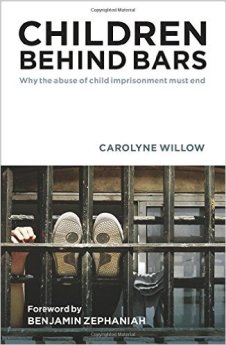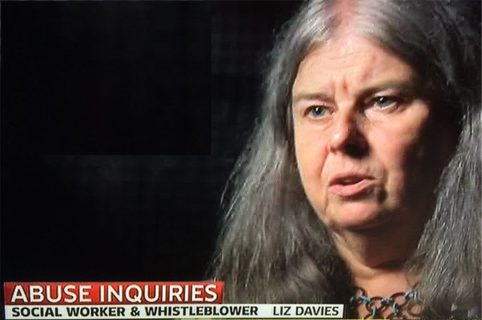Following on from my last blog, this week I obtained an original copy of the Home Office ‘Report of the Committee of Enquiry into the Conduct of Standon Farm Approved School and the circumstances connected with the murder of a master at the school on 15th February 1947’. It cost me £22.00 – the original price was just 9D [pence]. It is 69 years since 4 boys were convicted of the murder of a Master at this institution and 5 others pleaded guilty to conspiracy to murder. The Headmaster was dismissed and the school closed.
The Inquiry concluded that the causes of the murder included;
- The isolation of the school
- The prolonged bad weather coupled with the lack of a suitable gymnasium or adequate recreational facilities
- The prohibition of smoking and the cumulative effect of the long standing regime of limited freedom
- The collective punishments and threats of collective fines
- The inadequate system of distributing pocket money
- The inadequacy of religious guidance
- The lack of understanding on the part of the Headmaster of his boys as individuals and their belief in his unfairness particularly in respect of the uncertainty as to licensing (permission to leave the institution and be on license in the community)
- The gross carelessness of the headmaster with regard to the safe custody of fire-arms and ammunition
- The presence in the school of a boy with a very strong personality and a burning sense of grievance.
The Inquiry led to the establishment of the first secure units for children. Stronger arrangements to imprison children were defined as the solution to the prevention of such crime in the future, instead of analysing the causes of the young people’s behaviour and emphasising the importance of child-centred, therapeutic care systems.
The report makes interesting reading in the context of an inspection report detailing attacks on staff by young people in the Rainsbrook secure training centre, during the first quarter of 2016 when 5 staff needed hospital treatment. 61 boys and 13 girls, who had a custodial sentence or were on remand, were at this time in jail at Rainsbrook which was run by the private company G4S.
In 2004, 15 year old, Gareth Myatt died following restraint procedures at Rainsbrook. He was three days into a six-month sentence for stealing a bottle of beer and assaulting a social worker at a children’s unit when he refused to clean a sandwich toaster in the dining area. Some of the profiles of the young people at Standon Farm describe histories of petty crime such as stealing a rabbit or apples prior to placement in Approved School for crimes such as indecent assault, theft and unlawful wounding. Their background in care homes, experiences of neglect, poverty, mental health difficulties, disrupted schooling and chaotic family lives are surely little different from the backgrounds of the young people confined at Rainsbrook in 2016.
There are other similarities – both were isolated institutions, both had physically abusive, degrading regimes which denied the young person’s rights to safety and protection. There were some obvious differences – unlike the young people at Standon Farm, the Rainsbrook young people had no access to guns.
Frances Crook, of the Howard League for Penal Reform, said, ‘I visited Rainsbrook some years ago and found it to be claustrophobic and obsessed with security, a recipe for exactly the disaster now happening. These child jails run for profit are secretive and should never have been set up in the first place. Rainsbrook should be closed immediately. No child is safe in this jail’. In her recent blog, Frances Crook stated that, ‘Inspectors found instances of violence and restraint by staff were too frequent. The number of restraints and use of force had increased since the last inspection with an average of 29 incidents each month… We have expressed serious concern about the probity of MTCNovo taking over caring for these children because of its poor record in the US where the company is being investigated for running a jail described by a judge as ‘horror as should be unrealised anywhere in the civilised world’…These secure training centres have failed children for two decades. Children have died, children have been injured, children are released back into the community more damaged and emotionally harmed. As a nation we have to learn that we cannot keep inventing new ways to lock up children who simply do not require custody’. Ofsted inspectors said Rainsbrook staff had behaved extremely inappropriately towards the young people in their care, causing them distress and humiliation. There were major concerns about safeguarding, violence and restraint.
Governments and their policy-makers have been aware of clear messages from Inquiries dating back to 1947, stating that violent, unjust regimes, based on techniques of humiliation and restraint, in institutions isolated from families and the community lead to disastrous consequences for the young people and for staff.
The Standon Farm report described the ‘unimaginative system of rewards, privileges and grading in operation’ which the boys found to lead to unfair treatment. Freedom to go outside the school was one example of a practice granted only to, ‘selected boys on very special and infrequent occasions’. The boys said they felt ‘keenly seeing a member of staff smoke while they were forbidden to do so; they formed a band to pick up cigarette ends’. Recreational facilities were severely limited and deprivation of these as a punishment was a serious cause of unrest. Denial of sweets and pocket money or being made to stand long periods on the parade ground as a collective punishment was experienced as grossly unjust by boys who were innocent. The Headmaster ran a ruthless regime of intimidation and severe punishments.The number of canings had increased from 25 in 1945 to 50 in 1946 and the Inquiry noted that most of the convicted boys had been physically punished.

In 2015, Carolyne Willow, children’s rights activist wrote a comprehensive account of the imprisonment of children, entitled ‘Children Behind Bars: Why the abuse of child imprisonment must end’. She outlined the harsh realities of penal child custody including hunger; denial of fresh air; cramped and dirty cells; strip-searching; segregation; the authorised infliction of severe pain; uncivilised conditions for suicidal children and bullying and intimidation and drew attention to the right of children in custodial settings to protection. This enlightening, but seriously depressing book, reaches one conclusion ‘child prisons must close’.
The Standon Farm Inquiry concluded that, ‘conditions such as we found at Standon Farm School are in no way typical of conditions generally throughout the Approved School system’ . I wonder what the authors, Mr John Cyril Maude MP and Dr John Corlett MP, would have thought this week on reading the Rainsbrook inspection report.
.

You must be logged in to post a comment.